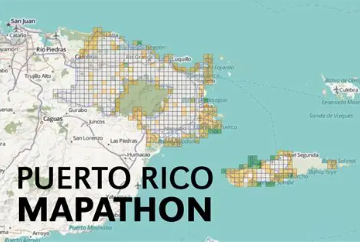
Theoretical Framework
Postcolonialism emerged in the 1960s to describe the historical period following Western colonialism with the intention to reclaim the voices and histories who had been marginalised by imperialistic narratives – and silences. .
‘A critical analysis of the history, culture, literature and modes of discourse on the Third World countries in Africa, Asia, the Caribbean Islands and South America, postcolonialism concerns itself with the study of the colonization (which began as early as the Renaissance), the decolonization (which involves winning back and reconstituting the native cultures), and the neo colonising process (an aftermath of postmodernism and late capitalism, when multinational corporations control the world).’
Nasrullah Mambrol
On Postcolonial Literary Criticism
The further intention of Postcolonial literary theory is that it undermines centuries old colonial narratives with ‘counter-narratives of resistance by rewriting history and asserting cultural identities’. What is also important, is to share these narratives.
How is this achieved?
The Digital Humanities.
Roopika Risam, author of New Digital Worlds: Postcolonial Digital Humanities in Theory, Praxis, and Pedagogy, wrote that Postcolonial Digital Humanities ‘pushes the envelope by interrogating the ‘human’ in digital humanities’, reclaiming suppressed narratives and reaffirming cultural identities. Digital Humanities provide the source through which this result can be achieved – and published for a general public to experience and learn from.
Roopika Risam,
New Digital Worlds: Postcolonial Digital Humanities in Theory, Praxis, and Pedagogy
An additional purpose here, is that without such measures, the redacted archives may have been published regardless – as a natural progression point of technological advancement. It therefore became an integral race to ensure that the true stories were not only discovered, and histories silences filled with the voices of those oppressed communities – but it must be published first. This has been (for the most part) achieved – and is a continuing ambition.
The truth must be restored, reclaimed and preserved. Digital Humanities.
Furthermore, as argued by Risam, Digital Humanities is not just a theory: it is practical and actively involved in the systemic injustices that are published through the venture. This is an active intervention to combat the lasting effects of colonialism around the Globe “postcolonial digital humanities is not only a theoretical or analytical approach … Rather, it requires praxis at the intersection of digital technologies and humanistic inquiry … in order to actively resist reinscriptions of colonialism and neocolonialism”.
Mapathon:
An example of this which Risam cites is the ‘Mapathon’ project in Puerto Rico. In 2017 Hurricane Maria created a devastating humanitarian crisis. However, aid efforts were significantly harmed by the fact that the colonial-era maps (which had, for reference: been digitised) contained myriad ‘gaps and omissions’. The Group for Experimental Methods in the Humanities at Columbia University improved the OpenStreetMap platform to enlist staff, students and community members to outline geographic landmarks against updated satellite imagery.


While this remains an incredible tale of the efforts of not only humanity, but the Digital Humanities, the disaster ‘exposed the cruelties of neocolonialism’, and demonstrated that the ‘digital cultural record has consequences for people’s lives’. The co-habitation of different intellectual disciplines can ‘transform the digital record’ and save lives.
However, there is a darker side to this which we must consider. Who has access to these sites? Risam encourages her readers to consider who oversees these operations, and who actually has access to that which is created – criticising the field as one which perpetuates the boundaries of power structures. Throughout her work, she references the ‘Global North’ and ‘Global South’, a geographical, financial and political divide, and Digital Humanities must be framed around questions of power, globalisation, and colonial and neocolonial ideologies’. It can be argued that Postcolonial Digital Humanities reveals that, unless these geographical divides are considered: and the Global South centred inside investigations and publications, then these inequalities are perpetuated. Therefore, the field is a double-edged sword if not utilised by the correct people, with the correct ethical intentions of returning historical truths.
Three sites which accomplish this are the: East Caribbean Digital Archives, the Colored Conventions Project and the Genoa Indian Industrial School Digital Reconciliation:
East Caribbean Digital Archives ECDA
East Caribbean Digital Archives makes available Caribbean texts and cultural documents previously hidden or dispersed, with a focus on education.
Colored Conventions Project
The Colored Conventions Project educates on nineteenth-century Black organising – and by digitising these findings, previously hidden truths is transported into the digital realm.
Genoa Indian Industrial School Digital Reconciliation
The Genoa Project works to “tell complete stories of Genoa” and offers archival justice by amplifying Indigenous narratives.